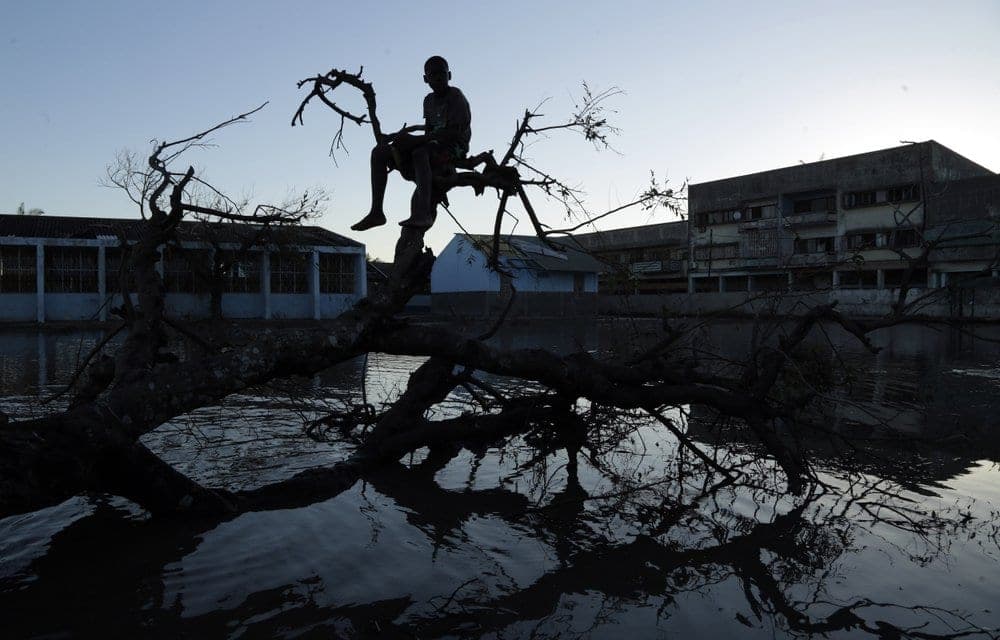YAOUNDÉ, Cameroon – Pope Francis leaves on Wednesday for a three-country visit in Africa, which includes Mozambique, Madagascar, and Mauritius.
The first city he will visit is Maputo, the capital of Mozambique, which is still recovering from a 1977-1992 civil war. A lower level insurgency continued to plague the southeast African country until Aug. 1, when the government signed a peace deal with the RENAMO rebel group.
Ahead of the visit, Francis prayed for reconciliation in Monzambique and across Africa, saying it is “the only hope for a solid and lasting peace.”
Francis is visiting the country just months after it was hit by two cyclones that left at least 600 people dead and displaced hundreds of thousands of others.
Crux spoke to Erica Dahl-Bredine, the country representative for Lesotho and Mozambique for Catholic Relief Services (CRS), the development agency of the U.S. bishops’ conference.
She spoke about the expectations and hopes of the Mozambican people, and the chances for peace in the country.
Crux: How would you describe the general atmosphere in Mozambique in the build-up to the Pope’s visit?
Dahl-Bredine: People are excited and hopeful about the visit. Many are saying that the last time the pope visited Mozambique, in 1988, peace came soon afterwards, so maybe it will happen again this time.
Is there any pathway to peace in that country?
Yes, we see hope for a lasting peace, but it must be a peace that addresses the root causes of conflict in the country – widespread poverty and inequality. These are the primary factors that are driving the more recent violence in northern Mozambique as well.
The pope will be coming with a message of peace and reconciliation. What does that kind of message mean for the people of Mozambique and other war-torn countries in Southern Africa?
The theme of his visit- hope, peace and reconciliation – is hugely significant for the country. Mozambicans have suffered so much death, destruction, and conflict this year. They badly need a messenger of hope like Pope Francis, a messenger who is likely to speak forcefully to the country’s leaders about their responsibility for bringing about peace and addressing the root causes of the conflict.
Pope Francis also visits a region devastated by Cyclones Idai and Kenneth. Can you paint a picture of the destruction that has been caused by the two storms?
When Idai hit, some 900 square miles of land were completely underwater – an area larger than the cities of New York and Los Angeles combined. More than 600 people were killed and nearly 1.9 million needed assistance. Cyclone Idai was considered the worst natural disaster in southern Africa in nearly two decades. Then, 5 weeks later, Cyclone Kenneth hit further north. Both cyclones left hundreds of thousands of people displaced and without food, as their crops were destroyed just before harvest time.
How is the region recovering?
Many people have been able to repair their homes with emergency building materials, but have not started the process of completely rebuilding. Over 700,000 hectares of crop land was destroyed, but CRS and other organizations provided seeds and farm tools to allow as many farmers as possible to plant short term crops while weather conditions allowed. What will likely take much longer, however, is healing the trauma that so many families experienced: So many children who lost a parent in the floods, parents who saw their children swept away; the healing will be a long process.
What has been CRS input in the recovery effort and what have been the drawbacks?
CRS, working closely with our Caritas partners on the ground in Mozambique, has provided emergency shelter materials, food aid, hygiene kits, kitchen kits, seeds, and/or tools to more than 30,000 households affected by the cyclones in four dioceses of central and northern Mozambique. We are now moving into the recovery phase. Challenges in the response and recovery efforts included difficult access to flooded areas, delays involved with obtaining badly needed relief supplies from outside the country and violent attacks in northern Mozambique which impeded relief workers from accessing the affected communities.
Going forward, how can locals better prepare for such storms in the future?
CRS and local partners are working to help families build back safer, with sturdier and more durable housing. A lot of work has also been done by the government to relocate people living in flood prone terrain to safer areas. CRS-supported projects also help communities organize disaster risk management committees and better equip themselves in the face of future disasters.
Crux is dedicated to smart, wired and independent reporting on the Vatican and worldwide Catholic Church. That kind of reporting doesn’t come cheap, and we need your support. You can help Crux by giving a small amount monthly, or with a onetime gift. Please remember, Crux is a for-profit organization, so contributions are not tax-deductible.

















